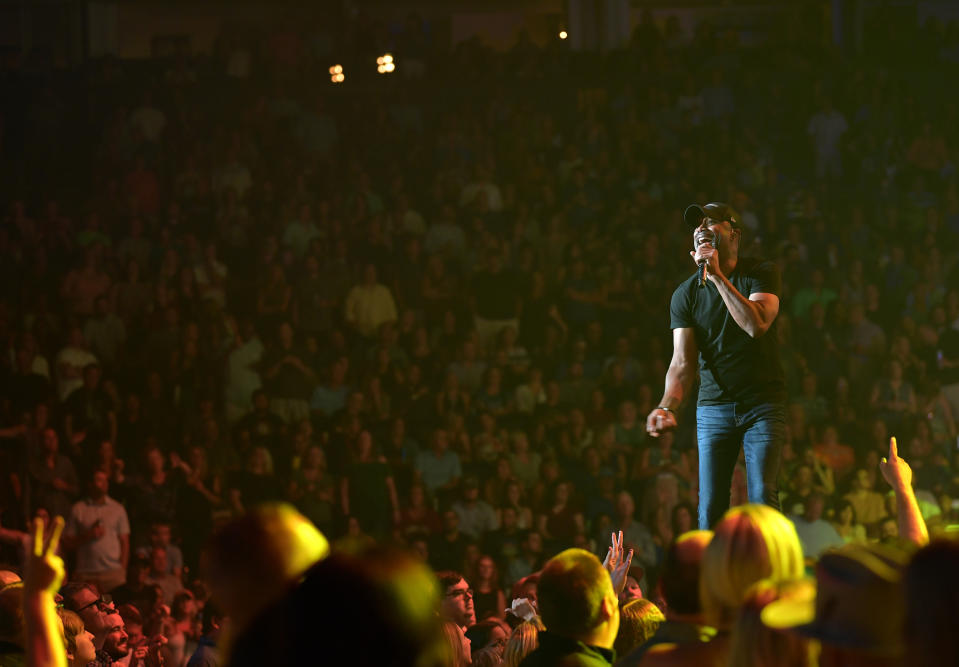Darius Rucker shares thoughts on inclusivity in country music in honest essay

- Oops!Something went wrong.Please try again later.
Darius Rucker is more than the sum of pop songs like "Only Wanna Be With You" — and being the lead singer of the 1990s band Hootie and the Blowfish.
He's racked up all kinds of hits as a country music star who first signed with Capitol Nashville in 2008. This makes him a rare Black performer in a largely-white musical genre, but as he notes in a new essay, that fact — as well as stereotypical attitudes about country musicians and country audiences — is shifting.

"Country music has this stigma of rebel flags and racism, and that's changing," he notes in The Tennessean. "I think it's changing drastically."
He explains that when he was a kid, he'd listen to fellow Black country artist Charley Pride's records, and "I was getting flak from my family for the music I listened to."
But the legend, Pride showed him a Black artist had just as much a right to sing country music as anyone else. In fact, he notes that the banjo, which is a staple in bluegrass/country music, originated in Africa. "It came over with slaves, and now it's one of the biggest instruments in country music," he writes. "Hank Williams Sr. listened to all of those blues players. I think African Americans have had a profound effect on country music."

He recalls coming to Nashville 14 years ago and being told that because he was Black, he probably wouldn't have much of a country career. But three No. 1 hits in a row between 2008-09 with songs like "Don't Think I Don't Think About It" and "Alright" proved them wrong. He was the first Black country artist since Pride to hit No. 1 on the country charts — Pride last did it in 1983.
This isn't the first time Rucker, 55, has spoken out about racism and country music. Last year on TODAY, he told Harry Smith how he's "lived with racism his whole life," and recalled the times his music was shut out. This act only made his intentions stronger.
"When I was going to radio stations and you got guys telling me, 'We're not gonna play you 'cause you're a Black guy,' that's just the way it is," he said on TODAY. "I can't live like that anymore. I can't just go, 'It's OK,' and go on with my life and let somebody say something that I know they shouldn't say."
Rucker isn't the only Black artist to have success on the country charts; Lionel Richie had several hits with his songs in the 1980s that broke past the top 40, as did the Pointer Sisters. But the turn of the century has seen a real renaissance in Black artists breaking into the country field, like Mickey Guyton, Kane Brown, the Cowboy Troy, and even Lil Nas X, who had his biggest hit to date with "Old Town Road," featuring Billy Ray Cyrus.

"When you have people that talented, it's important to get them represented," Rucker writes. "And the more that happens, the bigger our audience is going to get."
He adds that he believes in change. "(Y)ou can change people's hearts. You can change people's minds. You can change the way people see the world, if they love you, and if they're friends with you... I hope I'm remembered as one of the people that tried to fight that, and one of the reasons that changed."

